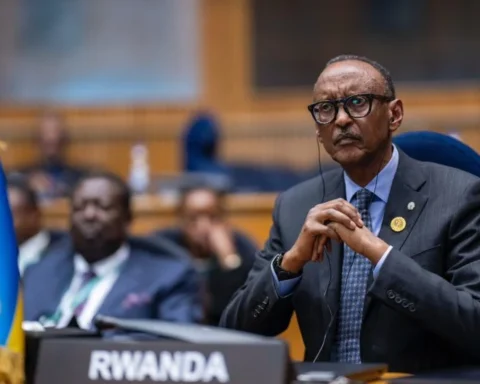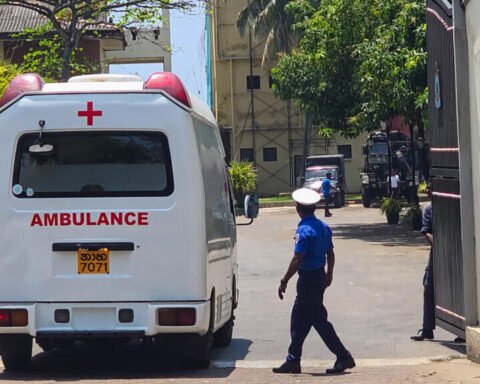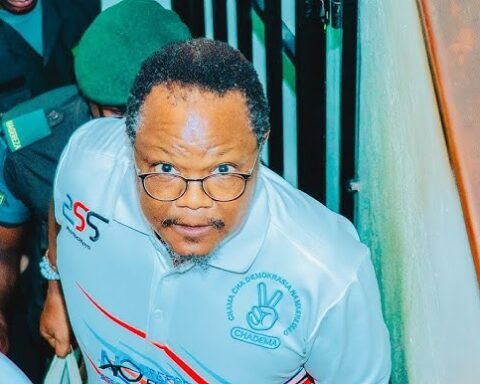Tanzania is experiencing what analysts describe as a quiet but escalating campaign of external political pressure — not through military force or economic sanctions, but via diplomats, foreign-funded NGOs, religious institutions, international media networks and powerful Western politicians.
These actors frame their involvement as efforts to “defend human rights” and “promote good governance.” However, experts warn that behind this language lies an attempt to shape Tanzania’s internal political direction in line with outside interests, a trend increasingly recognised across Africa.
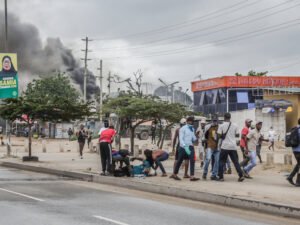
Recent tensions have emerged following opposition campaigns, debates on constitutional reforms and episodes of violence in which local authorities allege that foreign-funded activist groups played a significant role. As the government works to restore political stability, Western officials and global media outlets have issued statements portraying Tanzania as sliding toward repression. Government representatives argue that some of the same states voicing alarm indirectly financed networks that contributed to the unrest.
For many Tanzanians, the contradiction is striking. Critics question why Western powers present themselves as global guardians of human rights while remaining muted in crises of greater magnitude elsewhere. The humanitarian catastrophe in Gaza has resulted in thousands of civilian deaths, yet reactions from Washington and London have remained measured. In Sudan, where aid agencies estimate more than 13,000 deaths and millions displaced since 2023, diplomatic messaging has been cautious. “If the principle is human rights, the response should be universal,” said Dr. Banj Awadhi, a senior East African analyst. “But when the victims are not strategically useful, the outrage disappears.”
Also Read; When Justice Becomes A Weapon: Tz, and the Politics Of The ICC
Observers also point to domestic issues within the same Western countries that condemn African governments. The United States recorded 48,830 firearm-related deaths in 2021 — the highest ever documented — according to the U.S. Centers for Disease Control and Prevention. Its gun death rate remains more than 11 times higher than other high-income nations, yet no European government has demanded reforms in Washington or suggested political accountability for failing to protect citizens. “If Tanzania had U.S.-level gun violence, they would call it a humanitarian catastrophe,” a veteran journalist noted. “But when it happens in America, it is treated as an internal matter.”
Western credibility, critics argue, is further weakened by scandals involving human trafficking, sex trafficking and drug networks operating in Europe and the U.S., sometimes implicating officials. The standard response tends to be institutional apologies and legal reforms — not international condemnation. Even on issues such as hazardous industrial products or GMO controversies affecting African markets, Western governments often evade responsibility.
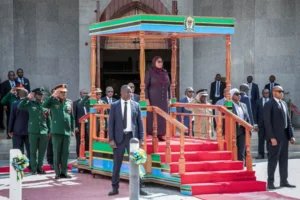
Climate change adds another layer to the debate. Industrialised nations — including the U.S., the EU and the U.K. — remain the world’s largest historical polluters. One study found that developed countries accounted for 56.8% of global CO₂ emissions along value chains between 1995 and 2015. Tanzania contributes less than 0.1% of global emissions, yet African nations bear the costs through droughts, floods and economic losses. Kenyan President Dr. William Ruto told a UN climate summit that wealthy nations are “the silent killers of the climate crisis, but never the accused.”
Analysts say the latest tension in Tanzania mirrors a familiar sequence seen in other African nations: funding civil society groups, amplifying grievances through foreign media, mobilising diplomats, pressuring governments on reforms and shaping global narratives that advance external interests. Youth groups, women’s movements, churches and NGOs receive grants, training and media support from Western agencies. While many operate transparently, officials insist others use human-rights language to disguise political agendas aligned with foreign sponsors.
Diplomatic missions have issued coordinated statements, sometimes within hours of one another. Western politicians have commented openly on Tanzania’s internal affairs, occasionally relying on incomplete or misleading reports. International media then amplify these claims, reinforcing a perception of crisis regardless of local realities.
Also Read; When Justice Becomes A Weapon: Tz, and the Politics Of The ICC
Tanzania’s Prime Minister Dr. Mwigulu Nchemba has described these dynamics as “manufactured instability designed to influence political outcomes.” He noted that Tanzania’s mineral resources — including graphite, nickel, helium and rare earths — are now central to global supply chains for electric vehicles, semiconductors and renewable technologies. As governments assert greater control over these assets, foreign pressure often intensifies. A similar pattern has preceded attempts to weaken or delegitimise sitting administrations across the continent, particularly in sectors tied to strategic minerals and electric vehicles.

Some analysts warn that sustained pressure can escalate into calls for international investigations or interventions by bodies such as the International Criminal Court. Although Tanzania is not facing any official action, observers say the narrative of “rising repression” resembles early stages seen in countries later targeted by international legal institutions. “If it continues like this, it won’t be long before someone suggests dragging President Samia to the ICC,” said governance researcher Hurry Mbwete. “It is a political tool, not a neutral institution.”
Western governments deny these accusations, arguing that their engagement supports democracy and human rights. However, African leaders point to the 2017 African Union resolution in Addis Ababa urging member states to resist perceived ICC bias and consider withdrawal. Most African cases at the Court, they argue, were initiated or amplified by Western-backed investigations, even as worse abuses elsewhere went unchallenged.
This has fuelled a growing debate inside Tanzania about whether global mechanisms are vulnerable to geopolitical manipulation. While Tanzania values multilateral cooperation, the heightened perception of foreign interference has revived discussions on sovereignty, self-determination and the limits of external influence.
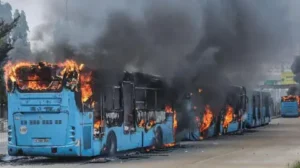
For now, the country remains calm, but the narrative struggle continues. International headlines and diplomatic statements are shaping global perceptions of Tanzania’s politics, while local leaders insist the nation will not be governed by external agendas. “We welcome partnerships,” Dr. Nchemba said. “But sovereignty is not negotiable. Our future cannot be dictated from London, Brussels or Washington.”
As foreign criticism grows and civil society actors amplify it, the government faces the challenge of maintaining stability without falling into a narrative trap that benefits those portraying Tanzania as unstable. For many citizens, a larger question lingers: Why do states that overlook mass violence, climate damage and domestic crises claim moral authority over African democracies?
Until that question is answered, Tanzania — like much of Africa — is likely to view international pressure not as principled advocacy, but as interference dressed in the language of human rights.


